
10 things to try if politics is keeping you up at night
By Jason Wooden, PhD and Kristal McKinney, LICSW, CMHS | December 1, 2020
If stress and worry over politics is keeping you awake, it’s not surprising. Political content is nonstop and pops up everywhere, including the most casual of conversations.
Stress and anxiety are common causes of insomnia as they can put you in a heightened state of arousal. Fortunately, there’s plenty you can do for your sleep including going on a media diet and other remedies.
Why politics is keeping so many of us up at night
If politics has been keeping you awake, you have plenty of company.
According to the CDC, 1 in 3 adults in the US don’t get enough sleep. Worldwide it’s about the same.
Among insomnia causes, stress, anxiety, and depression are known enemies of sleep.
There’s enough stress already in life – relationships, job, school, health, worrying about family and friends, money, and paying the bills.
And then there’s the stress and uncertainty that comes with politics – nonstop, never ending day after day!
And it’s everywhere… on your TV, radio, and social media.
Depending on the issue, it can pop up in the most casual conversation since it’s on the minds of people everywhere.
If your job or profession is affected by politics, that’s added stress for something out of your control.
Depending on what’s happening, it can leave you feeling down.
Did you know that during the 2016 US presidential election the American Psychological Association surveyed adults and 52 percent of respondents said it was a significant source of stress?
They also found that almost 60 percent were stressed out by the current political climate.
It’s a major distraction that’s taking a toll on people’s productivity, relationships, AND sleep.
And it’s understandable if politics has got you feeling anxious and a bit down.
However, it’s also important to keep in mind how much is at stake when it comes to sleep.
Sleep-deprived people don’t think too clearly and have a hard time functioning whether it’s at home or on the job.
They’re also more at risk for a myriad of health issues and depression…
The truth is you can’t put your life on hold. You still need to wake up and make the best of each day which means every night you should be getting the best sleep you can.
With everything going on these days, some might say it’s even more important than ever that you’re at your best.
Given all that’s at stake, let’s look at some practical things you can do to keep politics from keeping you up at night.
What stress and anxiety from politics does to keep you up at night
Occasional stress and anxiety is a normal thing.
It’s when it keeps happening at the wrong time that you can really get in trouble with your sleep.
A racing mind makes it hard to drift off to sleep.
As you get more and more stressed out, your body may turn on the fight-or-flight response and pump out stress hormones designed to get you in a heightened state of arousal and prepare your muscles for action.
A state of mental hyperarousal has been identified as a key factor for insomnia.
That’s why stress and anxiety is so bad at night – it’s makes it harder to fall asleep AND harder to stay asleep throughout the night.
Unfortunately, stress can aggravate any other sleep problems you have.
What’s worse is as you stress out about falling asleep you can get a sleep anxiety that feeds back on everything else.
So, that’s what politics does to keep you up at night.
How to stop politics from keeping you up at night
Okay, now we get to the good news – the practical things you can do so politics doesn’t keep you up at night.
Let’s be honest. When it comes to politics, there’s a lot out of your control.
Fortunately, there are plenty of things you can do to keep your sleep on track:

1) Put yourself on a media diet
A steady diet of breaking news can leave you wired up and feeling down. There is so much going all the time, it’s hard to unplug. It’s enough to drive anyone insane, but bad for political junkies.
Try unplugging from TV, Facebook, Twitter, and text threads. To minimize the effects of stress on your sleep, be sure to avoid media in the hours before you go to bed.

2) Set boundaries
Try to limit your political discussions with people you know and strangers too. Politics don’t have to be the end all for your relationships.
Focus on other things whether it’s shared hobbies, activities, or other nonpolitical interests. If you find yourself in political discussions, try to find commonalities between your views and leave it at that.
It’s okay to say I’m taking a break from politics or that out of respect for others I’m staying away. This may be easier said than done with some people you know. Just keep in mind it takes two to dance and you can refuse to participate.
Focus on what matters most, especially for relatives and good friends.
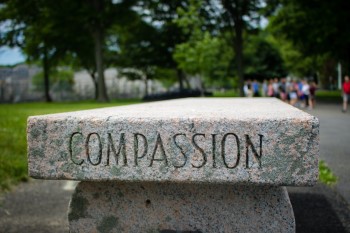
3) Practice compassion for others
Show compassion for yourself and others through seeing things from a different point of view.
We come into contact with people every day whose beliefs differ from our own whether it’s politics, sports, religion, or many other things.

4) Keep things in perspective
Keep in mind it is what it is. Recognize the things that are out of your control and focus on what you can do.
An attitude of acceptance can be freeing.

5) Feed your mind
Mindset is everything. Depending on your preference, they’re many different ways to nourish the mind whether it’s through a spiritual practice, meditation, mindfulness, or an uplifting book.
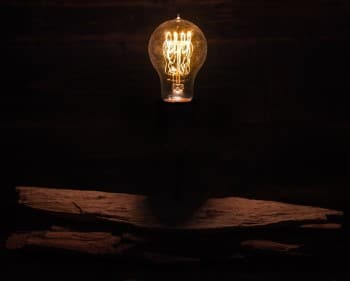
6) Find some other ways to occupy your self
As you start your politics media diet, it’s important to fill your time and mind with other things.
A couple ideas:
- start reading a book you’ve been meaning to get to
- join a book club
- watch a feel good movie
- go through your old family albums, videos, and cards
- pick up a new hobby or restart an old one
- start a new workout routine
- learn something new such as a language
- try a new or old board game
- visit some interesting locations
- go for a day trip in the car
These days there’s so much you can do online such as virtual cooking classes or language courses.
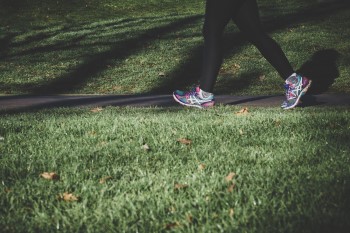
7) Stay active
Did you know that physical activity triggers the release of endorphins and other chemicals that improve mood? It can also reduce stress, anxiety, and depression.
Regular exercise also promotes deeper sleep.
So, get out for a brisk walk in the park, go for a swim, or dance to your favorite music.

8) Find some sleep-friendly ways to pass the time at night
It’s important to avoid doing anything that will get you more wired up and make it even harder to fall asleep.
Find some sleep-friendly ways to occupy yourself on the nights you’re struggling to fall asleep.
Be sure to avoid anything too stimulating. Instead, look for activities that will help you relax and more quickly transition to sleep.
You can try some light reading, quiet music, or listening to an audio book. How about a warm cup of milk or herbal tea, sitting in front of the fireplace, or a warm bath with candles?
There’s also recordings of rain sounds you can listen to on YouTube or a phone app. Some people even find a simple task such as mending clothes relaxing.
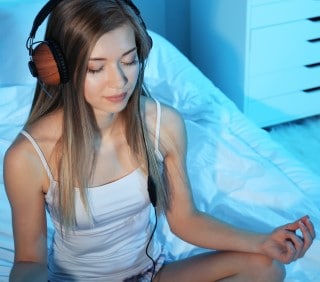
9) Try a relaxation exercise
Relaxation exercises are a great way to calm the mind and body so you can more easily transition into sleep.
There are plenty of techniques worth a try:
Visualization
Light stretching
Deep breathing
Progressive muscle relaxation
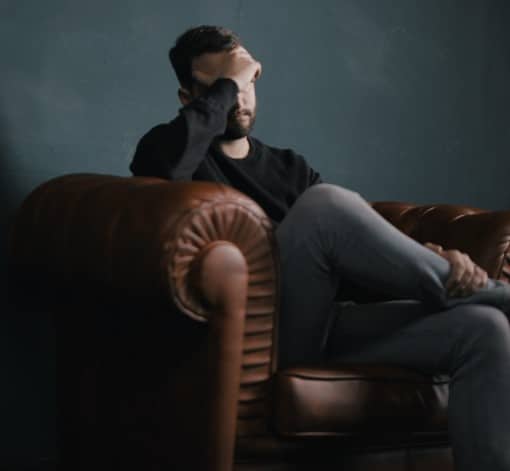
10) Reach out for help
If you find that you’re really struggling with things, keep in mind that you’re not alone. Try reaching out to a trusted friend or relative. You can also chat with a doctor or a mental health professional.
Other things you should do to improve your sleep
You may be worried about politics keeping you up at night but it’s likely not the only issue for your sleep. That’s because so many different things can affect sleep and too many people have poor habits surrounding sleep.
There’s a reason 1 in 3 adults struggle with sleep.
Some other things you should think about include:
Sleep hygiene:
You want to avoid anything that will make things worse which means you need to be following the rules for optimal sleep.
Sleep hygiene involves the everyday habits that can make or break sleep. Poor sleep hygiene can sabotage the other things you do to avoid insomnia.
For better sleep, you should:
- keep regular wake up and sleep times
- avoid naps
- exercise during the day
- avoid large meals, alcohol, or stimulants such as caffeine
- before bedtime
- maintain a bedtime routine that prepares you for sleep
- keep your bedroom quiet, dark, and cool
- avoid electronics use in the bedroom
Get a checkup:
It’s important to see a doctor, especially if your insomnia becomes a long-term problem.
Too many people aren’t aware that other health conditions can cause or worsen sleep issues. This includes things like chronic pain, heartburn, cancer, dementia, and asthma.
You may also be living with an undiagnosed sleep disorder such as obstructive sleep apnea.
Politics keeping you awake isn’t the only health issue
Now that we’ve looked at what stress and anxiety from politics does to keep you up night, there are some other things going on you should be aware of.
Poor sleep isn’t the only way it’s harming you.
Some of things ongoing stress can lead to include:
- digestive issues such as upset stomach or diarrhea
- heart issues
- more aches and pains
- headaches
- weight loss or gain
- sexual issues
- emotional issues
For some people, politics leave them feeling depressed which is also bad for sleep.
And poor sleep can trigger more stress, anxiety, and depression. If you’re not careful, you can get into a vicious cycle where things slowly spiral out of control.
So, it’s important to take an honest look at other things going on your life.
Has politics got you depressed?
The signs:
- Persistent sad, anxious, or “empty” mood
- Feelings of hopelessness or pessimism
- Irritability
- Feelings of guilt, worthlessness, or helplessness
- Loss of interest in hobbies and activities
- Low energy or fatigue
- Moving or talking more slowly
- You feel restless or have trouble sitting still
- It’s hard to concentrate, remember, or make decisions
- You sleep poorly, wake up to early, or oversleep
- Your appetite and/or weight changes
- Thoughts of death or suicide, or suicide attempts
- Aches, pains, and digestive problems with a clear cause and/or
- don’t respond to treatment
Sources: NIH
More helpful resources:
The best thing to do before bed and pitfalls to avoid
6 Ways to Keep Politics From Ruining Your Relationship
How to Avoid Letting Politics Ruin Relationships
The Do’s and Don’ts of Talking Politics in the Office
Worried about retirement and can’t sleep? – What to do for peace of mind
11 things to try if you’re feeling tired after retirement
3 things to do if you’re worried and losing sleep over rising gas prices
What to try if you can’t sleep after moving
A survival guide for people who can’t sleep after social events
You may also be interested in:
Sources:
1. “APA Survey Reveals 2016 Presidential Election Source of Significant Stress for More Than Half of Americans”, October 2016, American Psychological Association website
2. “1 in 3 adults don’t get enough sleep”, CDC website
3. “World Sleep Day Talking Points”, World Sleep Society website
4. “APA Survey Reveals 2016 Presidential Election Source of Significant Stress for More Than Half of Americans”, 2016, American Psychological Association website
5. “The Effects of Cortisol on Your Sleep”, 2020, Psychology Today website
6. “How to tell if stress is affecting your sleep”, Medical News Today website
7. Hyperarousal and sleep reactivity in insomnia: current insights. Nat Sci Sleep. 2018 Jul 17;10:193-201.
8. “5 Things You Should Know About Stress”, NIH website
Connect with us:
About Us
Better Sleep Simplified® was founded as a place for you to get clear and well-researched information.
Our goal is to make sure you know about your options so that you take action sooner rather than later.
Check us out on YouTube:
Watch and Learn
Helpful sleep tips, interesting sleep facts and statistics you want to know about
Affiliate Disclosure
This site is a participant in the Amazon Services LLC Associates Program and other affiliate advertising programs designed to provide a means for sites to earn advertising fees by advertising and linking to them.
Important: BetterSleepSimplified.com is for informational purposes only and is not intended or implied to be a substitute for professional medical advice, diagnosis, or treatment. Always consult a physician for sleep and health concerns. See additional information.
